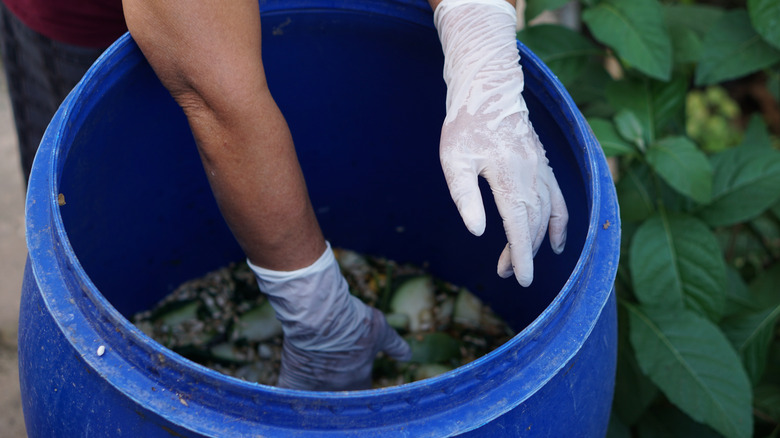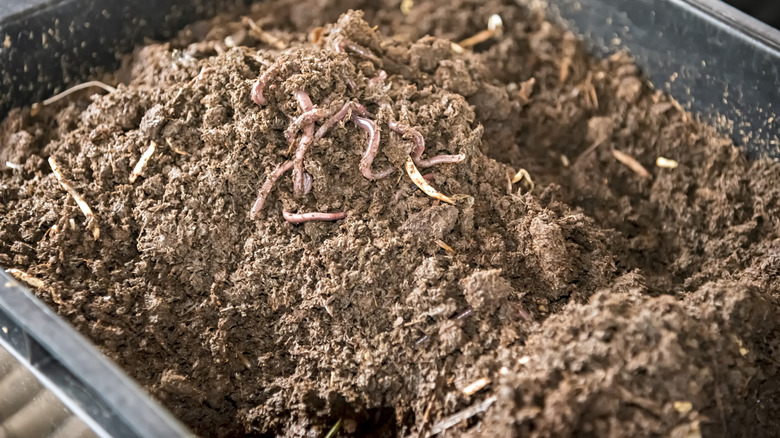If you desire a vibrant lawn or a thriving garden, fertilizers and plant food are essential. Nevertheless, maintaining all this greenery can significantly impact your budget.
You can create your own homemade compost bin.
And it proves effective for numerous homes. However, not everybody possesses the room or materials needed for an extensive composting setup or compact compost bins suitable for apartments. Compost tea, sometimes referred to as swamp water, offers a viable middle ground.
offering the advantages of home composting
at low expense, and tailored to fit your area and requirements.
Improving soil quality is a constant battle for gardeners and home landscapers each year, but
Compost tea could very well be the key to achieving a thriving garden.
. Homemade compost tea made by soaking kitchen scraps, lawn clippings, and even old, raked leaves in water can deliver essential nutrients and microorganisms that your plants and lawn will love. All you need to is dilute the tea with fresh water, and use it as a watering agent at the base of your bushes or garden vegetables, or spray it across the lawn and you’ll see the positive results in no time.
Read more:
10 Common Household Items You Should Be Repurposing In Your Yard & Garden
What Is the Process for Making Compost Tea?

You can
make DIY compost tea in many ways to nourish your garden
: From adding eggshells and salad scraps to a Mason jar to filling a 5-gallon bucket or 55-gallon drum with garden and grass clippings. Most of the ingredients for a successful compost tea are likely already in your yard or kitchen. So, how do you make this efficient fertilizer?
The premise is simple. For a medium-sized garden, fill a five-gallon bucket with the aforementioned food scraps, leaves, and grass clippings. Then pour water over it, cover the bucket, and let it ferment for a few days or weeks. Once it has steeped, strain out the solids and pour or spray the “tea” on your vegetables or lawn (it may need diluting). If you want bonus nutrients to supercharge your tea, add a few scoops of traditional manure fertilizer. Keep in mind that the larger the bucket, the more difficult it will be to strain the liquid. You can use a ladle or dip a watering can into the bucket, then mix the compost tea concentrate with water before applying it.
Is Compost Tea Better Than Traditional Compost?

Several advantages of conventional compost are not offered by compost tea. For instance, matured regular compost aids in retaining moisture, storing carbon within the soil, and importantly, introducing organic material into your garden. This addition helps decrease soil erosion and functions as a time-released plant nutrient.
However, if you’re facing a large task or seeking an extremely easy organic homemade solution to keep your grass vibrant all year round, compost tea can be effective. There are some
aspects to consider when applying compost to your grass area
Including volume considerations, a single bucket of compost tea can be diluted and sprayed over an extensive lawn, whereas covering the same area would require an entire bag of conventional compost. For gardens, using compost tea enables you to introduce beneficial microorganisms with much less effort than handling traditional compost, and nearly free compared to purchasing commercial fertilizers. However, one should remember that a container full of decomposing organic material could produce strong odors and attract mosquitoes—two issues most gardeners prefer to avoid.
Liked this article? Sign up for expert home advice, step-by-step DIY tutorials, and design ideas from our experts by subscribing now.
House Digest newsletter
!
Read the
Original Article from House Digest
.


